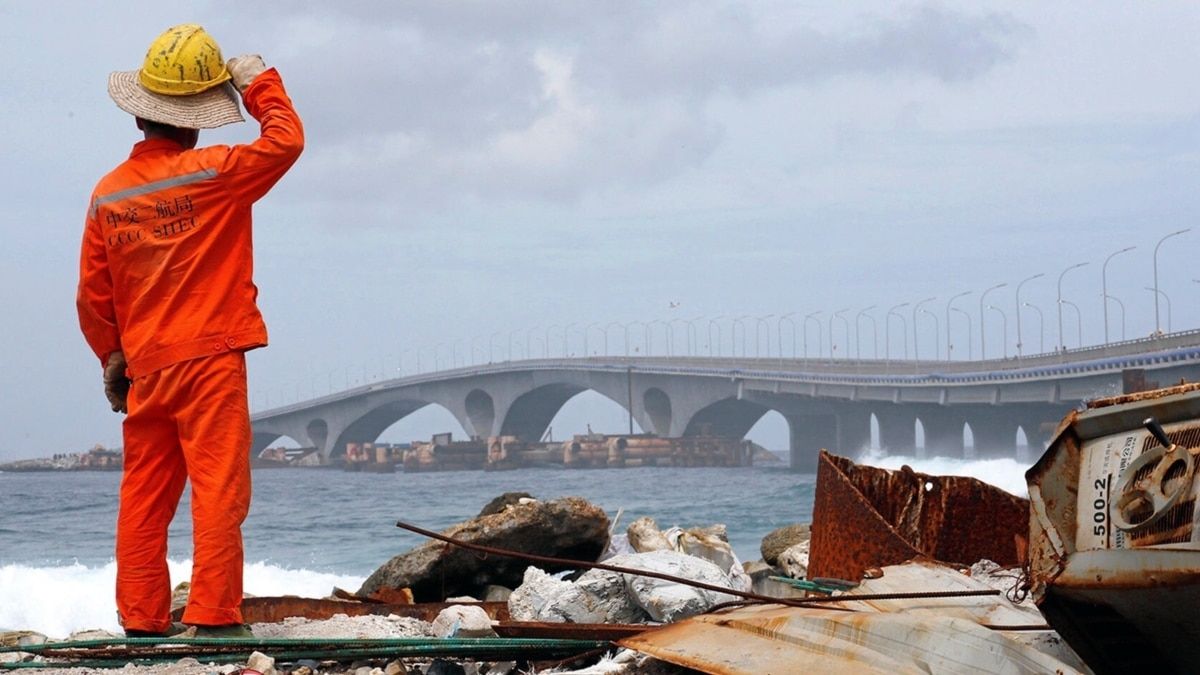Amidst Economic Concerns, Maldives Navigates Complex Diplomatic Waters
In a rapidly evolving geopolitical landscape, the Maldives finds itself at the center of a tug-of-war between major powers, while grappling with its economic vulnerabilities. Recent developments underscore the island nation’s delicate balancing act between fostering diplomatic relations and ensuring its financial stability.
Shift in Tourist Preferences and Economic Implications
Recent statistics have revealed a significant shift in the tourism sector, a mainstay of the Maldivian economy. Reports indicate
🚨 Indian tourists to Maldives fell to fifth position from first as of Feb 13 in 2024. pic.twitter.com/yoLSGc0jsL
— Indian Tech & Infra (@IndianTechGuide) February 17, 2024
that Indian tourists, who once stood as the top contributors to Maldives’ tourism revenue, have now fallen to the fifth position as of early 2024. This change in tourist demographics is not just a matter of national pride but has real economic implications for the island nation, which relies heavily on tourism.
The Maldives and the Chinese Debt Dilemma
The economic stability of the Maldives has come under scrutiny, with the International Monetary Fund (IMF) warning the country about its high ‘debt distress’ risk due to heavy borrowing from China. Under President Mohamed Muizzu’s leadership, the Maldives has deepened its financial engagements with China, a move that has sparked concern among international observers. The situation is reminiscent of past instances where heavy indebtedness to China has led countries into compromising their sovereignty. Experts argue
Now, IMF warns Maldives of high ‘debt distress' risk due to heavy Chinese borrowing
Last time, when Maldives was falling under China's debt-trap then India helped Maldives.
Muizzu came to power with an anti-India, pro-China rhetoric which now put Maldives in difficult situation pic.twitter.com/LcFM3wJw2E
— Anshul Saxena (@AskAnshul) February 16, 2024
that Muizzu’s pro-China stance may have led the Maldives into a precarious financial situation, with India previously stepping in to alleviate similar distress.
India-Maldives Naval Exercise Amid Diplomatic Strains
Despite the palpable tension and diplomatic rows between India and the Maldives, highlighted by trade disruptions and calls to boycott Indian products, the Maldives confirmed its participation in ‘MILAN 2024′, a joint naval exercise hosted by the Indian Navy. This move is seen as a complex gesture, balancing the Maldives’ need to maintain strategic relations with India while navigating its alliances.
Voices of Concern and Calls for Action
Amid these geopolitical maneuverings and economic challenges, voices on social media reflect a climate of concern and calls for action. Twitter users highlight the potential repercussions of boycott movements and demand a safe environment where Muslims’ religious rights are respected. These online expressions are a mix of emotional pleas and strategic calls to attention, emphasizing the intertwined nature of social issues, economic health, and diplomatic relations.
Reflecting a broader sentiment, some users have poetically underscored the implications of geopolitical decisions on smaller nations, paraphrasing how actions by larger powers can have immediate and lasting effects on countries like the Maldives.
Looking Ahead
The Maldives stands at a crossroads, with its economic stability at risk due to significant debt levels primarily driven by Chinese investments. The country’s strategic location in the Indian Ocean places it at the heart of major power interests, from China’s Belt and Road Initiative to India’s Security and Growth for All in the Region (SAGAR) doctrine. While the Maldives endeavors to navigate these waters, the question remains on how it will balance its economic recovery efforts with its diplomatic endeavors and internal social harmonies.
As these developments unfold, the international community remains keenly observant of the Maldives’ management of its economic challenges and diplomatic relations, recognizing that the outcome may set precedents for other small island nations in the region.
also read:Maldives: Navigating Debt, Diplomacy, and Geopolitical Struggles

